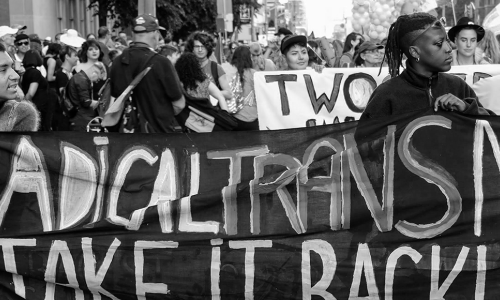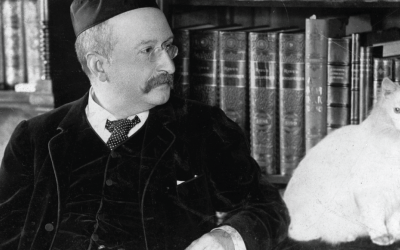In the third part of a series for young people, Steven Campbell-Harris asks whether consent can ground an obligation to parents and government.
A few years ago, in a pre-pandemic 2019, a peculiar news story reverberated around the world. The headlines wrote themselves: man sues parents for giving birth to him. A twenty-seven-year-old man in Mumbia, India, Raphael Samuel, had taken his parents to court to make a point. Though the lawsuit was destined to fail, unsupported as it was by any legal precedent, his main goal was to spread a message; children do not owe their parents anything.
In videos posted on his Facebook channel and YouTube, Samuel presented his case. No one consents to being born, he said. Our parents choose to bring us into existence, we have no say. However, to ‘owe’ someone we must first consent to having that obligation. Since we didn’t (and indeed couldn’t) consent, it follows that we don’t owe our parents. We may treat our parents kindly because we like them, or it’s prudent to do so, but we have no genuine obligation towards them.
Consider now a different case with a similar argument. In the United States of America in recent decades, a growing group of people have declared themselves ‘sovereign citizens.’ In essence, they say that since they never agreed to the federal government’s authority, they cannot be arrested or charged with a crime. They view citizenship as a contractual agreement with the government which they can decide to forgo. Typically, ‘sovereign citizens’ will not get official documents (e.g. marriage licenses, driver’s licenses) or do things (e.g. pax taxes) that imply a willingness to enter into that contract. There is footage online of self-proclaimed ‘sovereign citizens’ being pulled over for driving offences, refusing to show identification and protesting ‘I do not consent, I do not consent!’ as they are forcibly dragged from their cars by police.
What counts as genuine consent?
Both Raphael Samuel and the sovereign citizens insist on the vital need for consent in generating obligations to others. But what exactly is consent?
Contracts give us a helpful model to begin with. If I make a contract with someone, for example to have my television fixed in return for a fee, my consent should meet three conditions: it ought to be given in advance, well-informed, and unforced. If I am forced into signing a contract, it is invalid. Similarly, if I only find out afterwards how much I needed to pay, if I am misled, or I am insufficiently informed by the contractor (e. g. they don’t tell me about a much easier and cheaper solution that I could do by myself).
Using these three conditions as our test, it’s clear that any obligations to parents or the government fail at the first hurdle. We don’t consent in advance; we are sons or daughters, or citizens, without choosing to be so. However, there are some other ways that we can try to find grounds for consent for obligations.
Some philosophers appeal to the idea of implied consent. When I go to a restaurant, order food, and consume it, I don’t explicitly consent in advance to paying for the food at the end of the meal. Nonetheless, there is an unspoken tacit agreement to do so. When I finish, I cannot simply walk away. I owe the restaurant. Therefore, obligations don’t need to be grounded in explicit prior consent. When we are aware of, and intend to use some benefit, we can have an obligation afterwards to pay it back.
Let’s see if this can be applied to our two cases. When we use government services (e. g. public roads, public education, public healthcare) or participate in the process of electing a government by voting, do we implicitly consent to being a citizen with all the obligations that entails (e. g. paying taxes, serving jury duty etc)? When we sleep in the bed that our parents bought for us, eat the food they made, and accept the support they give us, do we implicitly consent to an obligation to them?
The Enlightenment philosopher David Hume argued that ‘implied consent’ fails to ground obligations to government because of the lack of realistic alternatives. We must use government services to live, and it is exceedingly difficult to leave, so our decision is forced. He wrote,
Can we seriously say, that a poor peasant or artisan has a free choice to leave his country, when he knows no foreign language or manners, and lives from day to day, by the small wages which he acquires? We may as well assert, that a man, by remaining in a vessel, freely consents to the dominion of the master; though he was carried on board while asleep, and must leap into the ocean, and perish, the moment he leaves her.
Hume pokes fun at the idea that we are ‘free to leave’ the country. In many instances this is not possible or so undesirable as to not be a genuine option. Hume also notes that there is a third option; we can stay on this ship, go overboard, or go onto another ship (i.e. live in another country with a different government). Can we use this to ground consent? Since we could live in another country, do we implicitly consent to be governed by this government if we stay here?
If we apply Hume’s reasoning to the parental case, things look much worse. Children don’t have realistic alternatives to living with their parents or guardians. They are physically, psychologically, and legally unable to exercise their freedom to jump ship. As a result, it doesn’t look like we can ground obligations to parents or guardians in implied consent.
Philosophers also speak about hypothetical consent. We ought to consider, they say, if someone would have consented if they had been presented with the choice beforehand. Take the case of someone who has been in a car accident. Imagine that they are unconscious and have lost copious quantities of blood. Without a blood transfusion, they will soon die. Since the patient is unable to give consent, the doctor might reasonably impose a different test; would the patient consent to the transfusion if they could? Presumably yes. Therefore, there is good reason to go ahead with the transfusion.
We can apply this approach to consent to our examples. If you had been given the choice to be born into your family, or never be born at all, would you have chosen to live? Similarly, if you had the choice to be a citizen of your country with its current government, or to live without a government, would you have chosen to be a citizen? If you said yes to both questions, does the fact that you would have consented have the same force as actually consenting in advance?
One problem with this approach is that there are some people who would answer no to these questions. First, there are anarchists; those who believe that it would be better to live free from government authority. Second, there are antinatalists; those who believe that it is better to have never been born, that on balance life is not worth living. While it is beyond the scope of this article to examine these belief systems further, the fact that some people explicitly reject the terms of the deal raises doubts for hypothetical consent. Explicit dissent trumps hypothetical consent - someone who refuses a blood transfusion on religious grounds will get their wish - so if someone challenges government authority or parental obligations then does that mean they have no such obligations?
Can we have obligations without consent?
The theories of consent that we’ve looked at have problems, so we might reach for other ways to ground obligations to our parents and the government. Is it possible to have obligations without consent?
One common way that people justify obligations without consent is reciprocity; if you help me in some way, I owe you something in return. If Raphael Samuel was well-treated by his parents, or we were treated well by the government, we ought to repay them.
One problem with this argument becomes apparent when we consider a similar case. Suppose you stop at the traffic lights in your car. Someone comes out with a bucket of soapy water and a sponge and starts to give the car a quick clean before the lights turn green. After they have done you a service, they stick out a hand to ask for change. Are you obligated to give money to them? In this instance we might feel indebted to them, but not believe that we actually are indebted. Is this the same as the cases of our parents and the government?
A second problem with reciprocity is that even if we do owe our parents or government something, it is difficult to set a limit or to determine exactly what we owe. If someone invites me over to dinner, I might consider that I ought to have them around for a home-cooked meal myself. However, we can never repay our parents or the government in kind. They provide us with goods (our lives, security, education, various types of support) which we cannot strictly repay. If we are to owe them something, it is not comparable to what they have given us. What, then, do we owe them? Do we owe our parents frequent visits in their old age? Do we owe our government community service, or a willingness to fight if the country is at war?
Perhaps there is an important difference with the car-washer case. Maybe what grounds obligations is not consent or reciprocity but relationships. You and the car-washer have no predefined relationship, you are strangers to each other. By contrast, the parent/child relationship, and the relationship of a citizen to its government, might come with specific obligations already attached.
However, it is hard to see how relationships alone can generate obligations without reciprocity or consent. First, many obligations in relationships do derive from prior consent. A couple entering a marriage make an explicit contract of their responsibilities to each other; say, to care for the other in sickness and in health, and to support them. These responsibilities are chosen, not inherited. Similarly, we might argue that parents have obligations to their children but not vice versa because the parents alone are fully responsible for creating the relationship.
Reciprocity also seems central to the obligation-generating qualities of relationships. If your parents or your government treats you well, we feel that we ought to repay them. But if your parents abandon you, fail to support you, or harm you we would not say that you have an obligation to them just from the mere fact that you have a relationship to them. Relationships without care are empty. Likewise, a government that treats its citizens poorly would also be one that we wouldn’t owe. If our government deprives us of rights or harms us significantly then we ought not to repay it. Overall, it seems that relationships cannot be an independent source of moral obligations. They are wrapped up with consent and reciprocity.
We might ask if we really need this idea of ‘obligation’. Is it necessary? Philosophers make the distinction between moral acts that are mandatory (you must do them to be good) and acts that are supererogatory (they aren’t necessary but still good to do). Could it be a positive thing to repay your parents or government, but not something that we strictly need to do? Or do we lose something important when we abandon the idea that we ‘owe’ our parents or our government something?
If you want to explore these ideas further, check out these articles and books:
What do grown children owe their parents? by Jane English
Anarchy, State, and Utopia by Robert Nozick
Better to Have Never Been: The Harm of Coming into Existence by David Benatar
"A Question of…” is a new series for young adult readers brought to you by The Philosophy Foundation. Commissioning editors for the series are Emma Worley MBE and Peter Worley.
Steven Campbell-Harris is a Senior Specialist and Trainer with The Philosophy Foundation. In these roles he facilitates philosophical conversations with children of all ages, gives talks on philosophy in schools, and trains philosophy graduates in philosophical enquiry. He has published articles on philosophy and education in Philosophy Now, Teaching Times, and Innovate My School.
You might also like...















